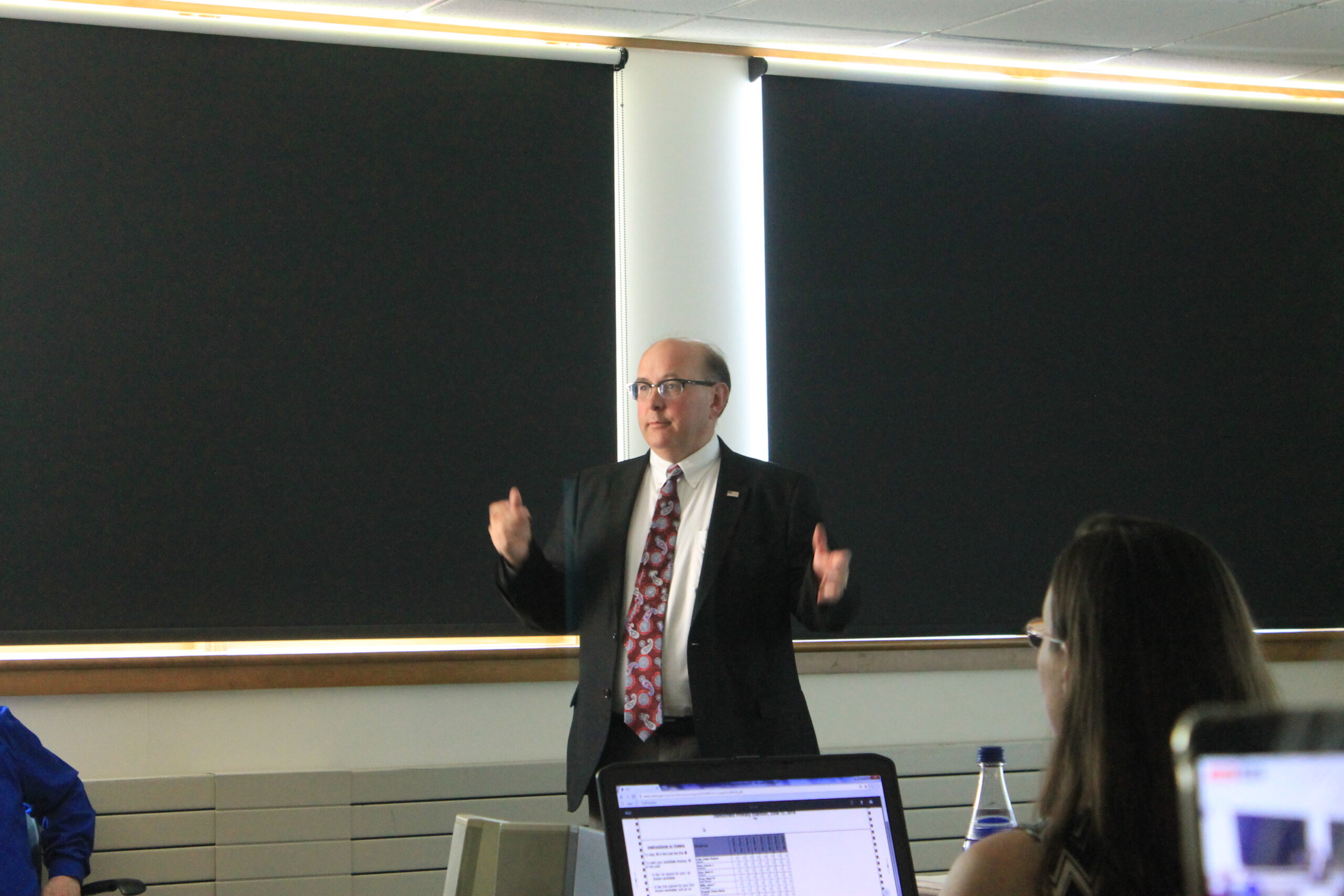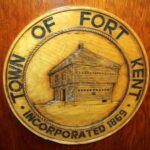
PRESQUE ISLE, Maine — Maine Secretary of State Matthew Dunlap spent an hour explaining the intricacies of the state’s new ranked choice voting system to a group of municipal clerks and interested citizens at Presque Isle’s Turner Memorial Library Monday afternoon.
Dunlap visited Presque Isle as part of a statewide effort to address concerns about ranked choice voting ahead of the June 12 primary elections, when the new voting system will be used in primary elections. Voters also will be asked if they want to continue using the ranked choice voting system.
Maine voters approved the ranked choice system by referendum in 2016, and this will be the first time the system has been used in a statewide election anywhere in the country, Dunlap said.
“We’ve gotten a lot of questions about how it’s going to work.”
In ranked choice voting, also known as “instant runoff” voting, voters select candidates in order of preference. If there is no majority winner from the first choice votes, the candidate with the least votes is eliminated, and votes are then re-tabulated in rounds based on the remaining choices until there is a majority winner.
“It’s in the final round that someone is declared the winner,” Dunlap said.
The actual vote tabulation work performed by municipal clerks and poll workers will not change, Dunlap said. They’ll only have to complete the first round of votes, while the rest of the work will be completed by the Secretary of State’s office
“For the town elections officials, their job is not going to change very much,” Dunlap said. “On election night, we’re going to have the towns do what they always do. They’re going to do the first rounds.”
Dunlap took time to explain the rest of “the back-end process” for ranked choice voting, which will mean more work for the Secretary of State’s office.
“We’ll have to gather all of that material and bring it to a central building.” A currier will be gathering all of those votes, including memory devices from electronic voting systems and voting boxes, and then a team of workers will be performing the tabulation.
“We’ll report the unofficial results as soon as they are ready,” Dunlap said.
Official results, though, “probably won’t be the next morning,” he cautioned.
“We look at a lot of different scenarios, like what if we had to do a hand count across the state? That could be a long time, that could be weeks or months,” he said.
“I do think it could be seven to 10 days,” “We’re going to be very transparent about what we do, which is really the key goal.”
Also appearing on the June 12 ballot will be a referendum question asking Maine voters if they want to continue using ranked choice voting for federal elections in November. Supporters of ranked choice voting initiated this referendum as a people’s veto after the Legislature voted to delay ranked choice voting until 2021 and repeal it if a constitutional amendment is not agreed upon.
If the legislative veto is upheld, ranked choice voting will only be used for federal races in November. It’s not being used for local or county races, Dunlap said.
“A yes vote means you would continue to use ranked choice voting in November. It would wipe away the repeal mechanism,” Dunlap said. “The no vote means that you would want to go back to the delay (until 2021) and then wait for a constitutional amendment or the whole thing would be repealed.”




